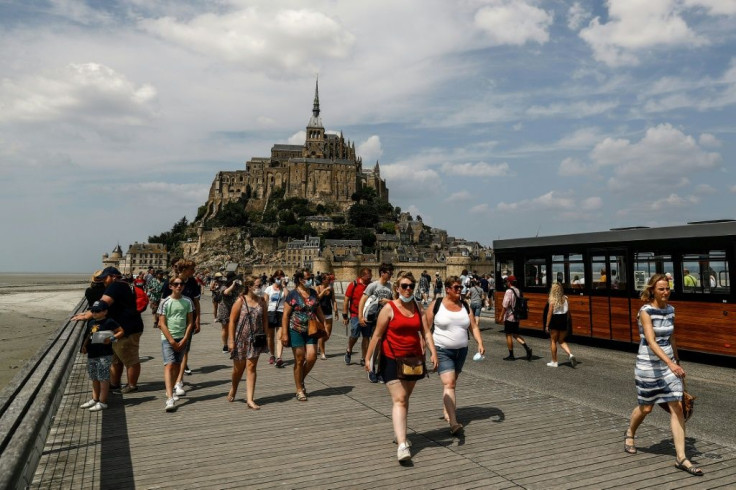Climate Change Could Make And Break Tourism Fortunes – Who Would Be Winners And Losers?

Climate change and rising temperatures could alter travel and tourism trends by diminishing the appeal of some destinations while raising the request for other destinations. As a result, it could change the tourism fortunes of local economies.
For instance, summer south European tourist destinations could become too hot and lose the appeal they enjoyed for decades. Conversely, northern European tourist destinations could enjoy milder temperatures and gain appeal.
If this shift in the weather pattern is the case, it could lead to a slowdown and even a reversal of tourism trends between northern and southern Europe, as north Europeans would rather spend their summer vacation time at home than travel in south Europe.
"The world is experiencing an alarming increase in extreme heat events, which are not only disrupting daily life but also reshaping the travel landscape as we know it," Erika Richter, vice president of communications at the American Society of Travel Advisors," told International Business Times.
"One of the most notable changes could be the shift in popular travel seasons," she explained. "For instance, the Mediterranean, known for its vibrant summer tourism, may witness a shift in its peak season to fall or spring as the scorching summer temperatures become less desirable. Airlines cease operations in extreme situations because it is too hot for the planes."
Josh Walker, business owner of U.K.-based Simply Seaviews, hopes to capitalize on this trend.
"We hope that, unlike the blistering temperatures of southern Europe, climate change could lead to warmer but more pleasant temperatures in the U.K., potentially making coastal regions more appealing for beach holidays," he told IBT.
"If the U.K. experiences milder and more predictable weather, it might encourage domestic and international visitors to explore U.K. coastal destinations like Cornwall and Pembrokeshire," Walker added.
Pankaj Mangal, founder of Bicycle Trips, already sees a noticeable shift in tourism patterns among European destinations. "Travelers are increasingly seeking out cooler destinations and locations that have not been as affected by these increasing temperatures," he told IBT. "This has opened opportunities for alternative destinations in more northern or elevated regions of Europe to gain popularity. Scandinavian destinations and the Eastern European country of the Czech Republic are two examples of countries that have seen a rise in popularity amongst tourists in search of cooler climates."
The shift in tourism trends will change the fortunes of local economies, as it creates winners and losers. "Tourism is a huge contributing factor to the economic health of tons of local economies around the world," Brittany Mendez, CMO of FloridaPanhandle.com," told IBT. "So many cities rely primarily on tourism for economic success and stability, which then impacts the country's health in its entirety. Climate change makes certain locations less popular, which can be a major problem. Less tourists means less money spent at local businesses, which means less money circulating in the economy — leading to job losses, which ALSO means even less money circulating in the economy. It creates a snowball effect."
Still, Fili Zelelidou, marketing and communication manager of Mediterranean Palace, a five-star hotel at the port of Thessaloniki, Greece, doesn't see any evidence that a change in tourism fortunes is underway. At least, not in Thessaloniki, among the most popular destinations of "Greece's Lovers."
"International tourism is about destination and experience," she told IBT. "Although the weather plays a crucial role during vacation, currently, it doesn't affect the industry. If I must relate it in a way, maybe the last-minute reservations could have been more, but nothing proves that the smaller number of last-minute-ers occurred due to bad weather in June. Fun fact: Over the years, Thessaloniki's off-season is the summer, but after COVID, this changed slightly. One can find more tourists during the summer, strolling around, visiting museums and trying new restaurants. Also, the city's location always was convenient for quick stops and shows that lately, these quick stops extend to spending a few days in the city before heading to the next destination."
© Copyright IBTimes 2025. All rights reserved.






















